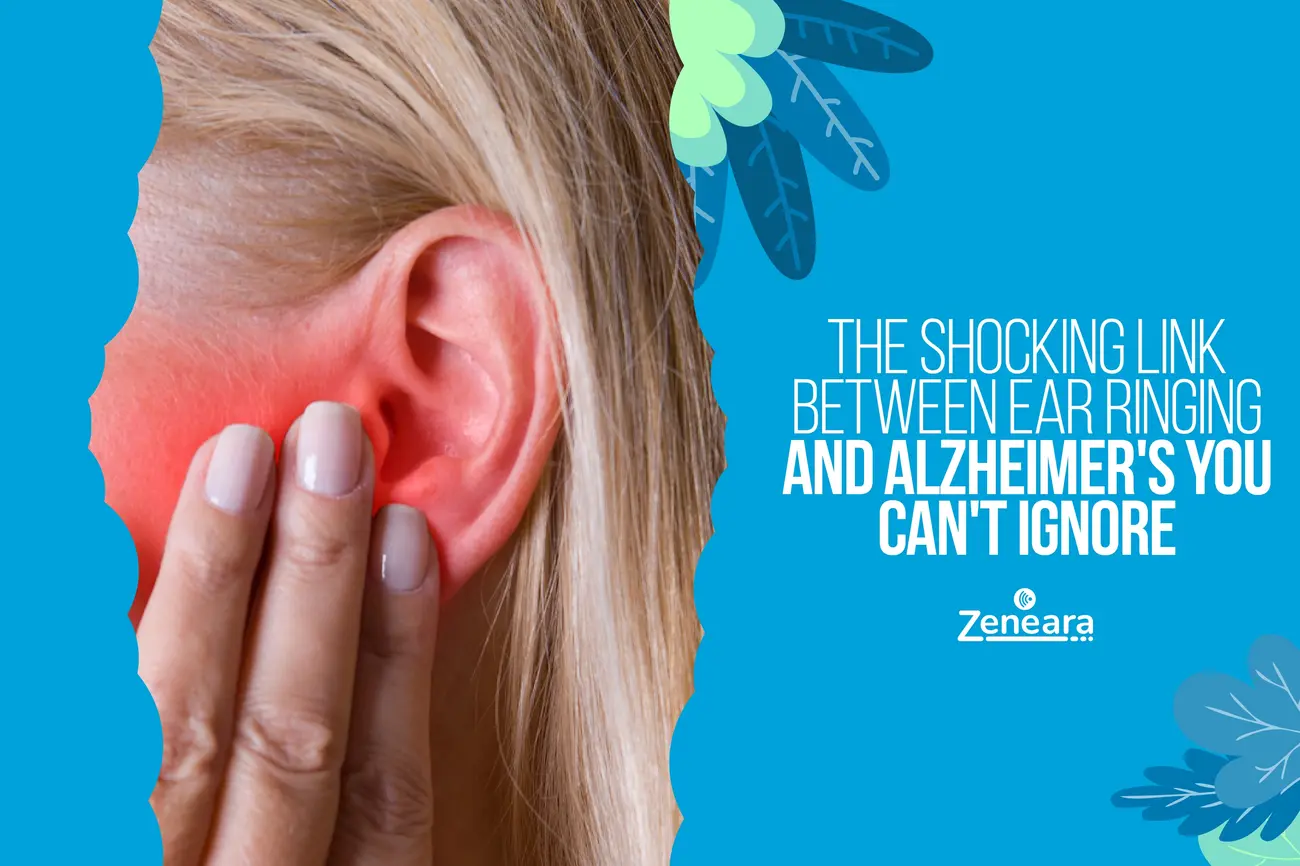Hey it’s James Barrett here!
I recently came across some chilling stories that left me both saddened and alarmed. Imagine being a loved one of someone with Alzheimer’s disease and discovering that they had been scammed out of millions of dollars.

The heartbreaking part? They didn’t even realize it was happening. These stories reflect the harsh reality faced by many families dealing with the devastating effects of this debilitating condition.
Have you heard similar stories? I’d love to hear your thoughts or experiences. Reply to share.
As I read these accounts, I couldn’t help but think about the importance of understanding Alzheimer’s disease—especially its early signs and how seemingly unrelated conditions like tinnitus can serve as early warning signals.
I believe in spreading this awareness so we can protect our most vulnerable asset and potentially slow or prevent cognitive decline.
So, let’s dive in…
The Connection Between Tinnitus and Alzheimer’s Disease
Tinnitus, often described as a persistent ringing or buzzing in the ears, is something many people experience, but its implications can be much more serious than we realize.

While it’s often dismissed as an annoying but harmless condition, recent research suggests that tinnitus may not only be a nuisance but could also be an early warning sign of cognitive decline, including Alzheimer’s disease.
Increased Risk of Alzheimer's
Studies have shown that individuals with tinnitus may be at a higher risk of developing Alzheimer’s.
For instance, a significant study published in Nature Scientific Reports found that those with tinnitus were approximately 1.54 times more likely to develop Alzheimer’s compared to those without the condition. Over a decade, 3.1% of tinnitus patients progressed to Alzheimer’s, compared to just 2.0% of those without tinnitus.
Cognitive Impairment
Tinnitus is frequently associated with cognitive deficits. Many individuals with tinnitus report difficulties with memory, attention, and executive function—all of which can be early indicators of Alzheimer’s disease.
This cognitive load can be overwhelming, as the brain struggles to process sounds while simultaneously managing everyday tasks.
Here’s where it gets wild…
Chronic tinnitus can actually change your brain structure. We’re talking about reductions in gray-and-white matter integrity.
These changes affect areas responsible for memory and cognition, potentially accelerating the onset of Alzheimer’s disease. The brain’s increased effort to interpret sounds can further contribute to cognitive decline.
Don’t forget that tinnitus often coexists with hearing loss, a known risk factor for cognitive decline and dementia.
Implications for Early Detection and Lifestyle Changes
Given the association between tinnitus and an increased risk of Alzheimer’s, it’s vital for healthcare providers and families to consider tinnitus as a potential early indicator of cognitive decline.
Early detection can lead to timely interventions, such as hearing assessments and cognitive evaluations, which may help in managing both tinnitus and the risk of Alzheimer’s.
Also, lifestyle changes supporting brain health, such as a balanced diet rich in omega-3 fatty acids, regular physical exercise, mental stimulation, and stress management, can potentially reduce the risk of tinnitus and cognitive decline.

For instance, engaging in activities that stimulate both the mind and body—like learning a new language, taking up a musical instrument, or practicing yoga—can help maintain cognitive function and reduce stress, which is a known trigger for tinnitus.
To wrap up,
While tinnitus is not a definitive predictor of Alzheimer’s disease, its presence can signal an increased risk and should not be overlooked.
By recognizing tinnitus as a potential early warning sign, we can take proactive measures to monitor and manage hearing health, ultimately improving the quality of life for those affected.






